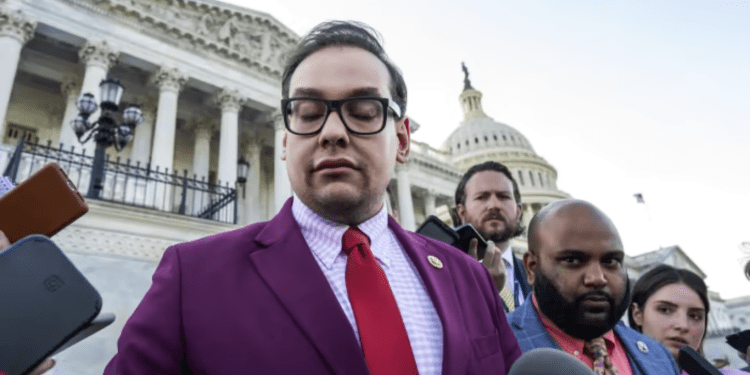- George Santos, a first-term House member, has been accused of exploiting political connections and opportunities for personal financial gain, with instances involving the use of cryptocurrency.
- In one instance, Santos and his partners proposed a convoluted scheme involving the creation of a limited liability company to access frozen funds of a wealthy Polish citizen for a cryptocurrency purchase.
- Santos has consistently denied allegations of misconduct and maintains he leveraged his relationships to generate wealth legitimately.
In the world of politics, the name George Santos has been making headlines for all the wrong reasons. The first-term House member, who’s currently under federal indictment, presents a classic case of using political connections for personal gain. Yet, his story takes an intriguing twist, as it intertwines with the dark side of cryptocurrency.
In 2020, Santos embarked on his journey into the House of Representatives. He seemed adept at extracting money from his political connections and opportunistically venturing into money-making schemes. He founded a political consulting group and sought to profit from the Covid crisis through his campaign connections. However, his most audacious plan involved a clandestine crypto opportunity.
A Cryptocurrency Scheme Under the Guise of Politics
About a year before Santos’ election to Congress, he, along with three other men, approached a loyal campaign donor with an interesting proposition. A wealthy Polish citizen, they claimed, wanted to buy cryptocurrency but was unable to access his frozen funds. The plan was for the donor to create a limited liability company to gain access to the Polish citizen’s funds, raising immediate red flags.
The scheme bore uncanny resemblances to the infamous Nigerian prince email scams, raising immediate suspicions. Santos had not yet requested money, but the premise of the deal was questionable. Nevertheless, the incident served to spotlight Santos’ proclivity for dubious ventures.
In this proposed venture, Santos partnered with Michael LiPetri, a former Republican state assemblyman, and Dominick Sartorio, a Republican donor running Bryant Park Associates. Their pitch was abruptly halted when the investor requested modifications to the presented nondisclosure agreement.
The Allure of Crypto in Scams
In the case of George Santos, the use of cryptocurrency in his alleged scam could have offered an efficient way to move large sums of money across borders without the scrutiny of traditional banking systems. The decentralized, pseudonymous nature of cryptocurrencies could have made the tracking of these funds difficult for investigators and regulators.
Moreover, with the right technical knowledge, transactions can be obfuscated further. Techniques such as coin mixing, where transactions from multiple parties are combined to obscure their origin, and the use of privacy coins like Monero, which are designed to leave less of a trace than currencies like Bitcoin, can make tracking illicit activities in the crypto sphere incredibly challenging.
This wasn’t the only time Santos found himself in hot water. He was charged with 13 felonies for various offenses, including misrepresenting his earnings, pocketing $50,000 solicited from political supporters under the pretense of a super PAC, and fraudulently collecting unemployment while employed. However, he has pleaded not guilty and has yet to be charged with personal use of campaign funds.














